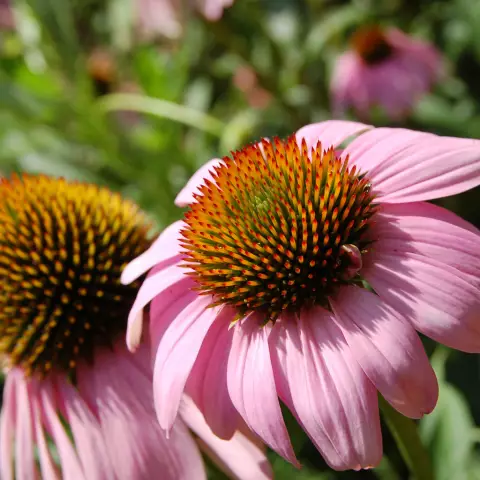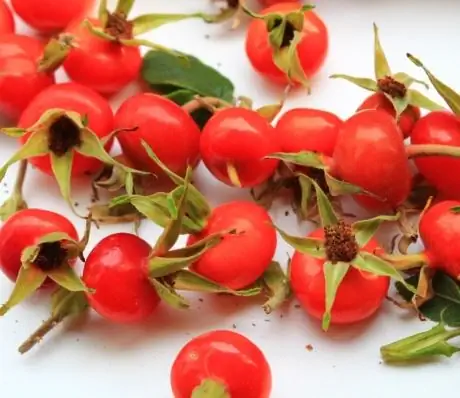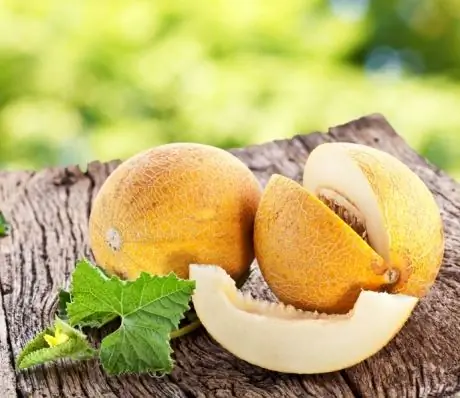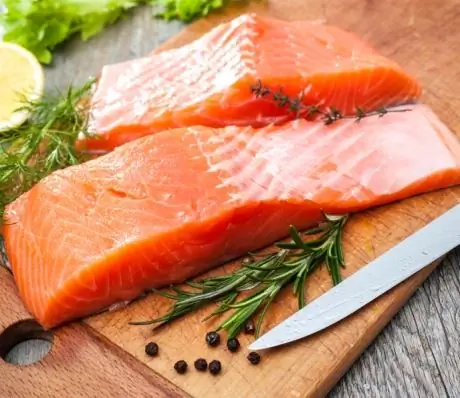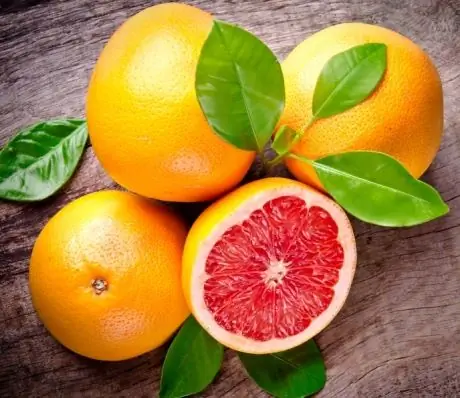- Author Rachel Wainwright wainwright@abchealthonline.com.
- Public 2023-12-15 07:39.
- Last modified 2025-11-02 20:14.
Echinacea purpurea
Instructions for use:
- 1. Chemical composition
- 2. Useful properties
- 3. Indications for use
- 4. Contraindications
- 5. Home remedies
Prices in online pharmacies:
from 158 rub.
Buy
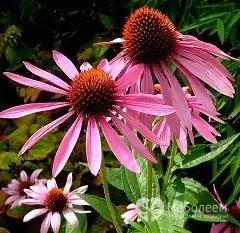
Echinacea purpurea is a perennial herb of the Astrov family. Distributed in the eastern states of the United States (along the sandy banks of rivers and on the prairies), and in Russia it is cultivated in the Caucasus and in the European part as an ornamental and medicinal plant.
For medicinal purposes, flower baskets are used, which are collected during the flowering period, and rhizomes with roots, which are collected in late autumn.
Chemical composition
In all parts of echinacea, polysaccharides (arabinoramnogalactans and heteroxylans), enzymes, and macro- and microelements (calcium, potassium, cobalt, zinc, selenium, molybdenum, manganese, silver, etc.) are found.
The plant contains essential oil: up to 0.5% in baskets, up to 0.35% in the grass and up to 0.23% in the roots and rhizomes. The main components of the essential oil are non-cyclic sesquiterpenes.
The roots of Echinacea purpurea also contain the following substances: glucose (up to 7%), inulin (up to 6%), phytosterols, glycosides, phenol carboxylic acids (coumaric, chicory, caffeic, ferulic), organic acids (linoleic, palmitic, cerotinic), resins (up to 2%), fatty oils, antioxidants (echinolone, echinocin), polyamides, betaine (0.1%), cis-8 pentadecadiene.
Beneficial features
Echinacea purpurea has the following beneficial properties:
- immunostimulating;
- antineoplastic;
- healing;
- hemostatic;
- anti-inflammatory;
- antiallergic;
- antioxidant;
- antimicrobial.
Indications for use
In folk medicine, the plant is used for flu and colds, bronchitis and pneumonia, diseases of the ENT organs, diseases of the bladder and liver, blood poisoning, diabetes mellitus, polio, smallpox, exposure to fungicides and heavy metals, snake bites.
Lotions and compresses with echinacea are used for burns, wounds and ulcers, herpes, urticaria and other skin diseases.
Plant-based preparations have a depressing effect on E. coli, streptococci and influenza viruses.
Recent studies have shown that echinacea is one of the most powerful and effective herbal immune system boosters and helps the body fight many diseases and infections.
Contraindications
Echinacea purpurea-based preparations are contraindicated in the following diseases and conditions:
- HIV infections, including AIDS (acquired immunodeficiency syndrome);
- autoimmune diseases, including systemic lupus erythematosus;
- multiple sclerosis;
- tuberculosis;
- leukemia;
- atherosclerosis;
- period of pregnancy;
- children under 3 years old.
Echinacea purpurea home remedies
- Echinacea infusion: take 1 tablespoon of chopped herb of the plant, pour 2 cups of boiling water, insist in a thermos for one night, then strain. Take for stomach ulcers, edema, joint pain and herpes three times a day 30 minutes before meals. Single dose - 100-150 ml. The course of treatment is 10 days. You can carry out two repeated courses at intervals of 5 days;
- Echinacea decoction: take 1 teaspoon of chopped plant herb, pour 1 cup boiling water, hold in a water bath for 15-20 minutes, leave to infuse for 30 minutes, then strain. Take to improve immunity, strengthen memory and attention, relieve stress and normalize vision three times a day before meals. A single dose is 1/3 cup. The course of treatment is 10 days. After a 5-day break, the course can be repeated;
- echinacea tea: take 2 teaspoons of chopped herb of the plant, pour 500 ml of boiling water, leave for 40 minutes, then strain. Drink 1-2 cups daily. This tea stimulates the immune system, rejuvenates and cleanses the entire body, helps with flu and colds, ulcers, boils, eczema and various inflammatory processes, promotes quick recovery after surgery or a long illness;
- Echinacea tincture: take 50 g of chopped herb of the plant, pour 1 liter of vodka and leave for 2-3 weeks in a dark place, shaking occasionally, then strain. Take with female and male infertility, prostate adenoma, to enhance potency, with female inflammatory processes, gastritis, stomach ulcers, obesity, vascular spasms three times a day 20-30 minutes before meals. A single dose is 20-30 drops. The course of treatment is 10 days. It is possible to carry out two repeated courses at intervals of 3 days;
- lotions and compresses: take 1.5 tablespoons of chopped herb of the plant, pour 1 glass of boiling water and insist in a thermos for 2-3 hours, then strain. Apply in the form of compresses and lotions for psoriasis, eczema, boils, abscesses, acne, acne, herpes, urticaria, burns, wounds, warts, abscesses, to remove age spots and freckles, insect bites and streptococcal infections.
Echinacea purpurea: prices in online pharmacies
|
Drug name Price Pharmacy |
|
Echinacea purpurea extract-VIS capsules 0.4g 40 pcs. 158 RUB Buy |
Information about the drug is generalized, provided for informational purposes only and does not replace the official instructions. Self-medication is hazardous to health!

